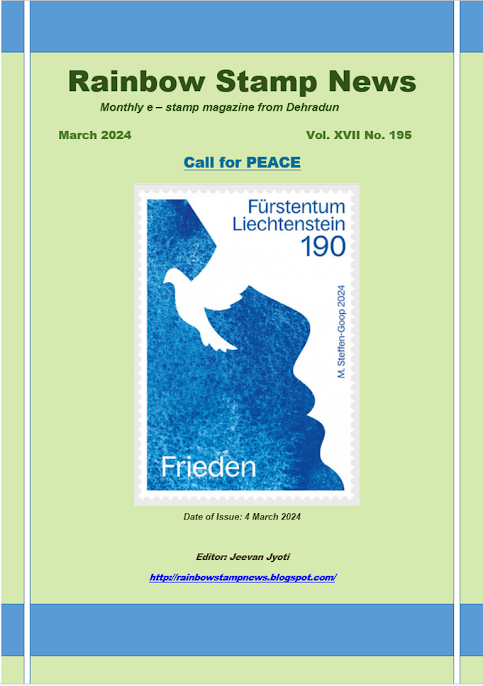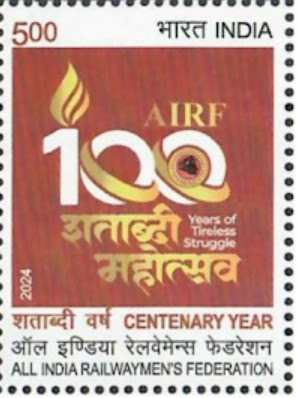Telegram exhibition in Chennai
On 15th JULY Telegram became history . I am giving here some news clippings commemorating the end of an era….
Dots and dashes weave a treasure trove of memories
A day after the 163-year-old telegram service was laid to rest, two philatelists, V. Ethiraj and M.T. Karunakaran, combed their collection of telegrams, and displayed some of the most significant ones tracing the evolution of the service in India. For those who have never seen a telegram, there are ones that date back to the East India Company period.
When they started collecting them, little did they anticipate the closure of the historic service. Organised by the South India Philatelists Association, Monday’s exhibition was not just about nostalgia. It was also about reiterating how intrinsic the service was to the nation’s as well as personal histories.
The exhibition begins with telegrams from the1850s. One of them dated 1 April, 1857 was sent from Bombay to Indore. Another is a receipt with the East India Company’s seal on the back. One little yellowing paper, dating back to 1860, was a notice to hire a peon. There were Indian telegrams with stamps, those carrying advertisements, and censored ones sent during the world wars, and also the famous ‘greeting’ telegrams. One shows how a map was used as an envelope after World War II owing to shortage of paper.
Mr. Ethiraj said that he has a box full of telegrams. The exhibition also traces the evolution from handwritten telegrams to printed ones, where strips of paper are seen pasted.
Mr. Karunakaran, who pursued his hobby more vigorously after his retirement in 1992, said that personal telegrams he received were also part of his collection. He asked several people for their telegrams too. G. Balakrishna Das, president, said that the exhibition will be on for another 15 days at the Philatelic Bureau on Anna Salai.
The exhibition captures not just how the telegram was used by the establishment but also by ordinary people eager to send out an urgent message. One of the exhibits shows a translation in Tamil at the back of the telegram so that it could be understood. , as many had to rely on others to read the contents in English. There is telegram sent for purchase of a horse, and another which reads “LILA RECOVERED DON’T PROCEED TO CALCUTTA”. The word ‘urgent’ was printed in red on the cover of the telegram. But, it may be too late now. “We are the last people to use the service and also to disown it,” said Mr. Karunakaran.
: Mahesh Parekh- Chennai
One of last ever telegrams goes to Rahul Gandhi
More than 20,000 telegrams are estimated to have been booked on the day the country bid adieu to the 163-year-old telegram service, with one of the last messages booked for Congress vice-president Rahul Gandhi.
The telegram to Mr. Gandhi was sent just before the service closed at 11.45 p.m. on Sunday at the Central Telegraph Office (CTO) in New Delhi. The Gandhi family scion was wished “success and happiness in life” and “glories of greatman of the past.”
Hundreds crammed into 75 telegram offices in the country to send souvenir messages before the service was permanently shut down.
Known popularly as ‘taar’ or wire, the telegram service, which provided millions with a fast and reliable mode of communication, closed because of mounting financial losses and becoming redundant in an era of mobile phones and Internet. “Around 20,000 telegrams are estimated to have been booked and 12,568 were despatched by afternoon. Last telegram was for Rahul Gandhi before computer finally closed. Maximum bookings of over 11,000 are estimated to have been done in Mumbai alone,” a BSNL spokesperson said. On average, 5,000 telegrams were sent daily.
BSNL, which was given the charge of telegraph after the latter was separated from Department of Posts in 2002, cancelled leave and increased staff at all telegram offices over weekend to cater to the last day rush.
Telegraph has a hectic last day in office
CHENNAI: The city may have bid farewell to the telegram, but officials are yet to call it a day. Officials are struggling to tide over the flood of billets they received on Sunday alone.
Their web-based transmission system is so slow that many telegrams booked on the last day might reach people only by next Sunday, say sources in the department.
G Kalyanaraman's decades-long experience in keying in characters could be gauged from the way his fingers rapidly flew over an old and faded keyboard as he typed out the 67th telegram on Monday noon. The senior most telegraphists and designated typist at the telegraph office on Ethiraj Salai, he wanted to finish the last day at his job. "I think the last time I typed this fast and so much was in May 1988 during a Rajiv Gandhi meeting at Kanyakumari," he said. The Ethiraj Road branch intends to send at least 200 messages to the telegram server each day. "We want to clear the traffic as soon as possible and maintain the dignity of the telegram," said V Chandrashekhar, a senior telegraphist.
On Sunday alone, Chennaiites sent 1,542 telegrams to loved ones, politicians, police and even to themselves just to own a piece of history.
Since the web-based telegraph transmission system (
A BSNL spokesperson confirmed that all telegraphs booked on Sunday would be sent off to the server by Monday. However, the blue uniformed delivery men will have to work at least till Thursday. "We will try doing as many deliveries as possible. So it will take another four days," she said.
However, many people are unlikely to get their messages anytime soon as the deliveries are being done for three pincodes in the city, while the rest will be merged with the post, said the spokesperson. "This is because we have only two or three delivery men per centre," she said.
Meanwhile, even as officials struggled with the sudden pressure, delivery men were a cheerful lot. "We've never been the focus of so much attention," said 55-year-old M Veeraghavan, who has been delivering telegrams for 31 years. Delivery men shook hands, exchanged smiles and nods before setting out on their bicycles.
"Yes, we'll miss this. But we are all also looking forward to what the future holds for us," said 55-year-old Manuel Joseph who has been delivering telegrams for the last 35 years.
Some of the telegrams took them on routes they've been delivering for decades, some to new ones. "Some of the children were so surprised when they received their first and last telegram. It was so nice to be a part of it," said Veeraraghavan.
"I was getting a telegram after years. It brought back a wave of memories. It was a family binder at a time when there were few other forms of communication. It is sad to see it's demise," said 53-year-old management consultant M Abdul Latif.
The service which brought good, bad messages ended on Sunday
Memories of an era gone by are all that remains for telegraphists, considered the backbone of the historic 163-year-old telegram service which came to an end on Sunday.
The State-run telecom firm BSNL has decided to discontinue telegrams following a huge shortfall in revenue.
“Sunday is the last day for telegram services. The service will start at 8 a.m. and close by 9 p.m.,” BSNL CMD R.K. Upadhyay said.
Septuagenarian Gulshan Rai Vij, who retired in 1997 as a veteran telegraphist after serving almost four decades in a government job, recalls working in the “golden era of the telegram.”
“Telegrams were notorious for bringing bad news, of war casualties and death from accidents. But, now it brings the news of its own demise. We have seen the peak of this service and worked in its golden era. New technology replaces the old, but telegrams gave us our bread and butter and our identity, so, indeed it feels sad to see it depart so unceremoniously,” Vij told PTI.
Mr. Vij says he “maintained his composure” around the India-Pakistan war in 1971 and the turbulent days of the Emergency from 1975-77 as he continued to deliver messages, “not allowing himself to be emotionally involved”.
“I was posted in Rohtak then. The 1971 war was when we worked round the clock without concern for food and water.
Messages of war casualties would come from the defence headquarters and we would just keep punching away the news as fast as possible.
“As a telegraphist, one could not have gotten emotionally involved with the sad situation because there were thousands of messages to be delivered on time, and we did our job in the best possible capacity. We were all driven by a national spirit and it just powered us to work in such tough and testing times,” he said.
For the world outside, a telegram operator’s job might be the most mundane but only a telegraphist knows the joys and the challenges of working on the telegraph machine, which saw its avatar change from the early Morse Code era to the teleprinters and the current Internet-based service.
Mr. Vij, who also later served as the telegraph training instructor for years, said, “The sound of the Morse Code machine which is operated by a key and the tone of dots and dashes still ring in my head. Even today, I can recognise any alphabet if you operate that machine. For others, it might be boring but for us, it was the most wonderful feel to operating those machines and connecting people with speed. Telegrams were the SMSs of today, short and swift,” he said.
“Telegraph is a must in a developing country. People in interior villages still need an inexpensive messaging service as private telephone companies don’t want to go to there. For, banks and for the Army dedicated services are run, and even today for jawans on the border, application for holidays is done through telegrams only.” says M S Arya, a veteran at the CTO.
For Krishna Kumar Yadav, an award-winning telegraphist at the CTO, who retires in 2015, the day of January 25, 2002 still brings memories of “learning the importance of his job” and “finding his own strength”.
“It was the noon of January 25, and I started sending telegrams and kept sending until I realised it was 7 a.m. in the morning when l left my post. In those 19 hours, I sent 5,875 telegrams which is still a record. For this service I was awarded the ‘Sanchar Seva Padak,” Mr. Yadav said.
A poem from Naresh Agarwal
WOH TO HUYEE HAI SHAHEED
Chalo maan le telegram
Ab mar gayee hai sda k liye
Par kabhi na bhulain hum jo
Upkaar usne hum pe kiye
Maana ki hum sabki Taar
Ab taar taar ho gayee
Betaar taar walon k samne
Woh lachaar ho gayee
163 baras ki zindgi main uski
Imaandari thi,gati aur josh tha
Harr khabar uski sachi thi
Na usme koyee dosh tha
Ek sachhe saathi ki tareh
Nirantar kaam kiya usne
Achha ya boora har treh ka
Har paigam diya usne
Na rukee, na thukee
Bas chalti rahi woh
Iss kone se uss kone
Bus machalti rahi woh
Main apne sab sathiyon ko
Dena chahta hoon ek taqeed
Mat kaho k woh mar gayee
Woh to huyee hai shaheed
Apne iss purane saathi ko
Kya de hum shradhanjali
Philately ka ek naya field banaye
Naam rakhen uska Taranajali
Chalo kuchh aisa karen
K iska charcha ho har gali
Taranjali uska naam ho
Ya fir ho telephilately
Band dibbon ko khol k hum
Har telegram bahar layenge
Iss treh se hum sab milkar
Iska ek vishal field banayenge……….
Iss treh se hum sab milkar
Iska ek vishal field banayenge………
Read More news about last day of the telegram service at following links …


















.png)













No comments:
Post a Comment